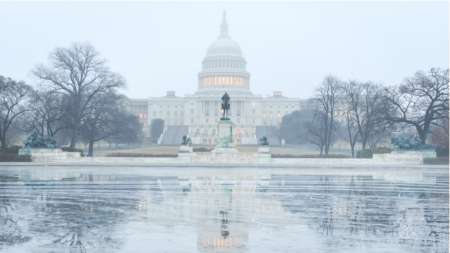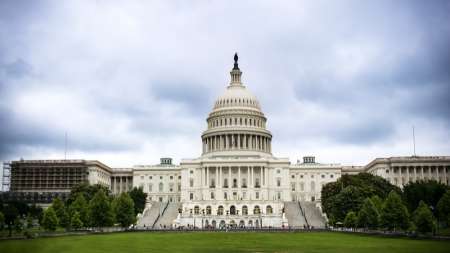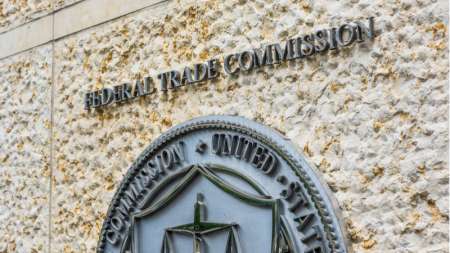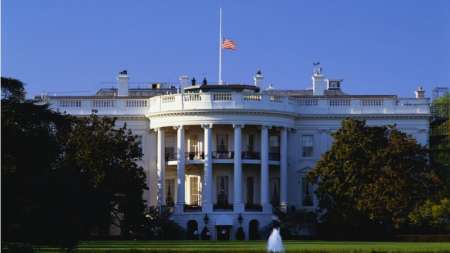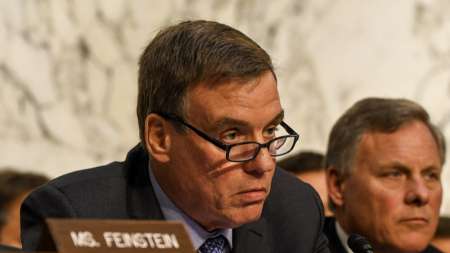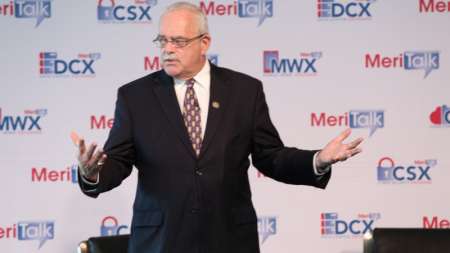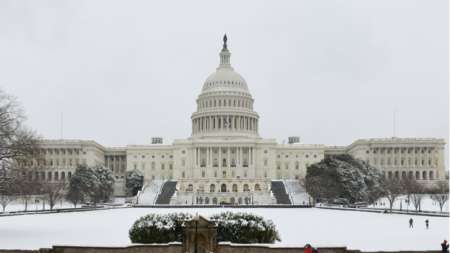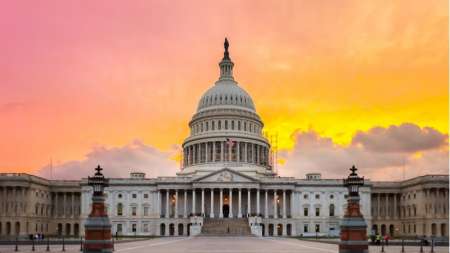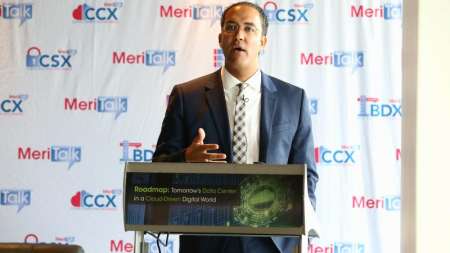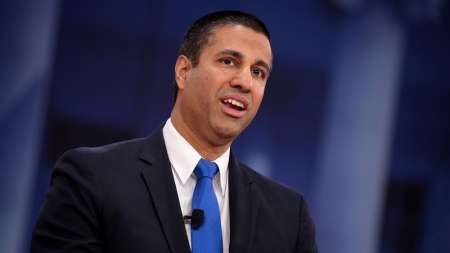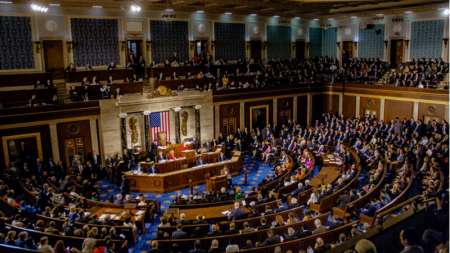With the 116th session of Congress now well underway, committee and subcommittee rosters are being finalized. For those in the Fed IT world, there are a few committee assignments to pay attention to. […]
A group of D.C.-area senators expressed their concern over guidance from the Office of Personnel Management (OPM) that asks federal employees affected by the shutdown to continue paying dental and vision insurance premiums. […]
Several Democratic senators voiced concern today over impacts of T-Mobile’s $26 billion agreement to acquire rival wireless service provider Sprint, and requested a hearing on the merger. At the same time, rural wireless carriers expressed their opposition to the deal. […]
Yesterday, 13 Democratic Senators signed and sent a letter to Federal Trade Commission (FTC) Chairman Joe Simons expressing their concerns over the FTC’s ability to monitor and respond to phone spam and robocalls during the partial government shutdown. […]
The tit-for-tat between President Trump and House Speaker Nancy Pelosi, D-Calif., continued to rage Wednesday, resulting in the President saying he is planning for an another location to deliver his State of the Union address which is traditionally hosted by the House of Representatives with a scheduled date of Jan. 29. […]
By a vote of 377-3, the House passed the Hack Your State Department Act late Tuesday evening. […]
Rep. Robin Kelly, D-Ill., has been appointed to the House Oversight and Reform Committee (ORC), formerly known as the Oversight and Government Reform Committee (OGR). Speaker Nancy Pelosi, D-Calif., announced the news last night. […]
Sen. Mark Warner, D-Va., introduced a bill that aims to prevent any future Federal government shutdown caused by lapsed appropriations by creating a mechanism to automatically renew government funding at the prior-year level with adjustments for inflation, the senator said. […]
Federal IT oversight will be the domain of the Subcommittee on Government Operations in the House Committee Oversight and Reform, and there will be no IT Subcommittee this session of Congress, said Rep. Gerry Connolly, D-Va., chairman of the Subcommittee on Government Operations, during an interview on Tuesday’s episode of Government Matters TV. […]
Republican and Democratic Senate leaders announced an agreement late today under which the Senate will vote Thursday on two pieces of legislation that would clear the way to fully fund government operations and at least temporarily end the partial Federal government shutdown, which entered its 31st day today. Whether either of those pieces of legislation […]
On Friday, the Senate blocked a bill that would open the Department of Homeland Security (DHS) through Feb. 8. […]
A House-Senate conference committee has pegged FY 2019 funding for the Technology Modernization Fund (TMF) at just $25 million, according to text of legislation made public by the House Rules Committee and set to be considered by the committee, and possibly by the House, next week. […]
Reps. Dutch Ruppersberger, D-Md.; Jim Himes, D-Conn.; Will Hurd, R-Texas; and Mike Conaway, R-Texas, have introduced legislation to create an Office of Critical Technologies & Security at the White House to coordinate action across Federal agencies and develop a “whole of government” strategy to combat theft of U.S. technologies by state actors including China, and to reduce risks to “critical supply chains.” This bill is a companion bill to one that was introduced in the Senate on Jan. 4 by Sens. Mark Warner, D-Va., and Marco Rubio, R-Fla. […]
Sens. Amy Klobuchar, D-Minn., and John Kennedy, R-La., reintroduced the Social Media Privacy and Consumer Rights Act on Thursday, which would strengthen privacy notices and breach disclosure requirements for online platforms. […]
Congress and the White House seemed no closer today to reaching an agreement to end the partial Federal government shutdown, as the public interactions between the two mainly featured an apparently tit-for-tat exchange between President Trump and House Speaker Nancy Pelosi, D-Calif., over the latter’s ability to use U.S. military transportation for an overseas trip. […]
Members of the House and Senate are giving the bipartisan Securing Energy Infrastructure Act another go in the current Congress, after passing the bill in the Senate in December 2018 but failing to get the bill through the House before the 115th Congress ended. […]
A group of House Democrats said today they plan to introduce a bill on Friday that would require the Treasury Department to offer zero-interest loans of up to $6,000 to Federal government employees that have not been getting paid as a result of the partial Federal government shutdown. […]
Apple CEO Tim Cook yesterday called for the Federal Trade Commission to take a larger role in protecting online consumer data by creating and overseeing a data-broker clearinghouse under which all brokers would have to register so that consumers could track how their data has been sold or deleted. […]
On Wednesday, President Trump signed into law a bill that would guarantee back-pay to Federal workers who have been furloughed during the partial government shutdown. […]
House Speaker Nancy Pelosi, D-Calif., updated her previous invitation for President Trump to deliver the annual State of the Union address to Congress today, suggesting that he should consider postponing the Jan. 29 speech or submitting it in writing until the Federal government is fully reopened. […]
Members of the House and Senate announced introduction of the Telecommunications Denial Order Enforcement Act today, which would require the Trump administration to issue export denial orders for Chinese telecommunications companies caught breaking export control laws and sanctions. […]
Rep. Will Hurd, R-Texas, has been appointed a member of the House Appropriations Committee, according to a press release from his office, but will remain committed to promoting Federal government IT modernization efforts, a Hurd staffer told MeriTalk. […]
Rep. Robin Kelly, D-Ill., announced today that she was appointed to three subcommittees of the House Committee on Energy and Commerce. […]
As the partial government shutdown reached day 25, the latest continuing resolution (CR) aimed at reopening the partially-shuttered Federal government until Feb. 1 failed in the House, today. […]
House Energy and Commerce Committee Chairman Frank Pallone, D-N.J., said Monday that Federal Communications Commission (FCC) Chairman Ajit Pai is refusing to give the committee an emergency briefing on wireless carrier data disclosure issues, and is citing the partial Federal government shutdown–which includes the FCC–for his decision. […]
The Federal CIO Authorization Act, sponsored by Reps. Will Hurd, R-Texas, and Robin Kelly, D-Ill., passed the House today unanimously on a voice vote, setting the stage for an elevated, more empowered Federal CIO position. […]
The partial Federal government shutdown continued its record-setting pace today as negotiations between the White House and Congress remained stalled and Mother Nature had a hand in preventing activity on Capitol Hill from progressing further. […]
In a letter on Friday to FCC Chairman Ajit Pai, Democratic leadership on the House Energy and Commerce Committee called for an emergency briefing from the Federal Communications Commission (FCC) to explain why the Commission “has yet to end wireless carriers’ unauthorized disclosure of consumers’ real-time location data and what actions the FCC has taken to address this issue to date.” […]
The Federal CIO Authorization Act of 2019, spearheaded by Reps. Robin Kelly, D-Ill., and Will Hurd, R-Texas, was added to the list of bills up for consideration this week late Friday evening. Rep. Kelly’s office confirmed to MeriTalk that the bill was on the House’s docket, but said given the snow that blanketed D.C. this weekend, things may shift around. MeriTalk previously reported that Rep. Kelly’s office believed that the legislation would be shelved until after the government reopened, but things appear to have shifted later in the day on Friday to move the legislation back on to the schedule. […]
Frederick Hill is the new managing director for FTI Consulting’s strategic communications unit in D.C. […]


